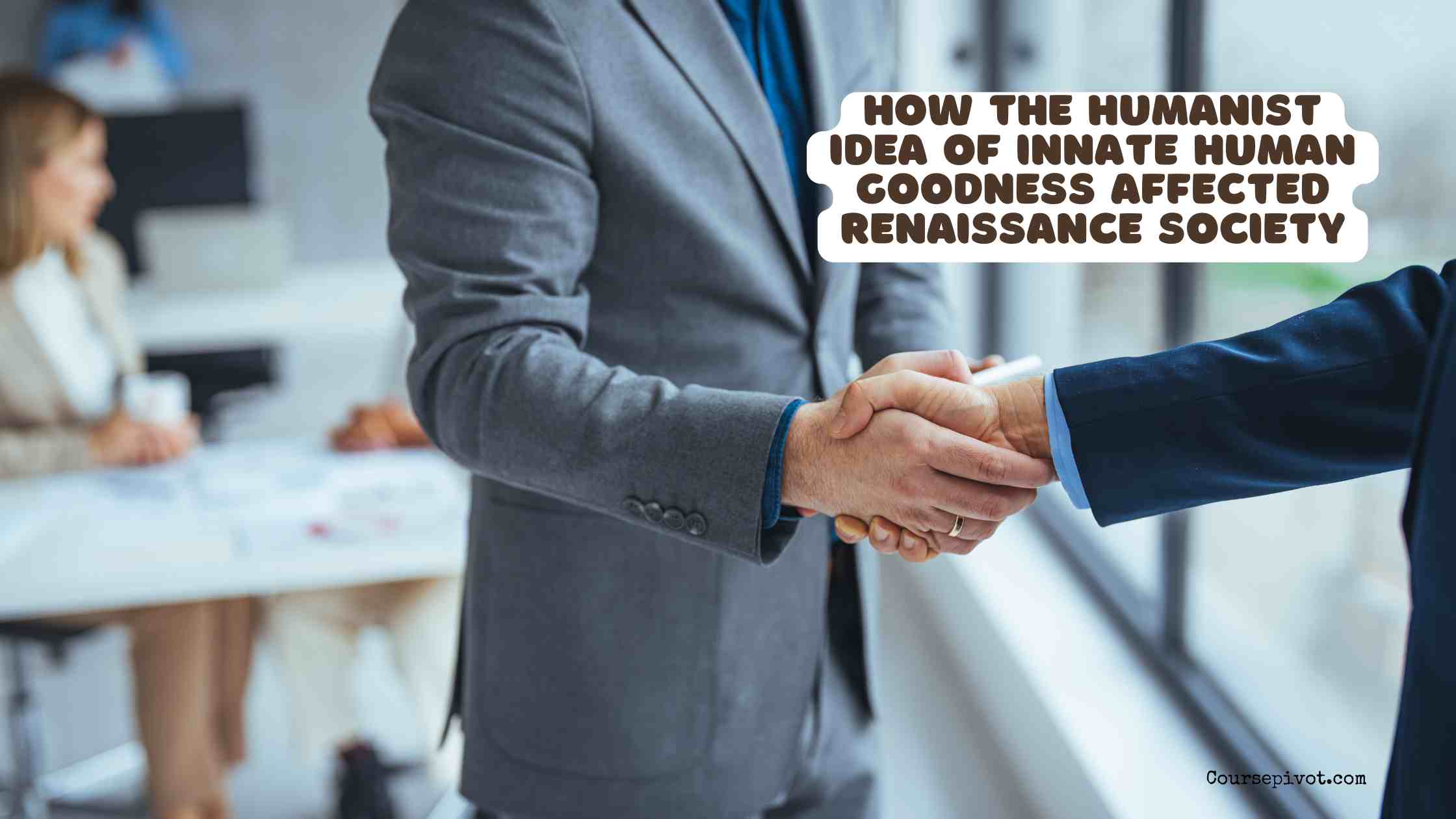
How the Humanist Idea of Innate Human Goodness Affected Renaissance Society
It’s been asked, Which humanist idea affected Renaissance society? The humanist idea that people are basically good at their core profoundly shaped Renaissance society by fostering optimism about human potential, encouraging education, artistic expression, and moral responsibility, and challenging medieval pessimism. Emerging in 14th-century Italy, this belief shifted focus from human sinfulness to inherent worth, influencing art, literature, and social reforms. This blog explores five key ways this idea impacted Renaissance society, with examples and practical takeaways, empowering you to understand its transformative role.
Table of Contents
Promoting Education and Self-Improvement
The belief in human goodness inspired a push for education to unlock innate potential. Humanists argued that people, being naturally capable, could achieve greatness through learning. This led to the studia humanitatis, a curriculum emphasizing classical texts, rhetoric, and ethics. For example, Petrarch, a key humanist, promoted studying ancient works to cultivate wisdom, believing everyone had the capacity for growth. Schools in Florence and Venice expanded, increasing literacy rates significantly. This focus on education empowered individuals to refine their talents, shaping a more knowledgeable society.
Inspiring Artistic and Literary Creativity
Assuming people’s inherent goodness, humanists encouraged artists and writers to express human dignity and emotion. This belief fueled the Renaissance’s artistic boom, with creators like Leonardo da Vinci portraying the beauty of the human spirit in works like The Last Supper. Writers like Boccaccio, in The Decameron, crafted stories celebrating human resilience and virtue. This optimism about human nature led to art that highlighted individual worth, moving away from medieval focus on divine judgment, and made creativity a celebration of human potential.
Encouraging Moral and Civic Responsibility
The idea that people are naturally good fostered a sense of moral duty to improve society. Humanists like Erasmus believed individuals could use their inherent goodness to act ethically and contribute to the common good. This inspired civic humanism, where citizens in city-states like Florence took active roles in governance. For instance, Coluccio Salutati, a Florentine chancellor, promoted public service as a way to express human virtue. This shift encouraged people to see themselves as capable of building better communities through ethical actions.
Challenging Religious Pessimism
Humanism’s view of innate goodness contrasted with the medieval Church’s emphasis on original sin, prompting religious reform. Scholars like Erasmus argued that humans could align with divine will through reason and morality, not just penance. His translations of the Bible encouraged personal study, empowering individuals to explore faith independently. This belief in human goodness laid groundwork for the Reformation, as figures like Luther emphasized personal faith, reducing reliance on institutional dogma and fostering a more optimistic spiritual outlook.
Fostering Social Optimism and Progress
Believing in human goodness created a cultural shift toward optimism, driving innovation and exploration. This mindset supported figures like Christopher Columbus, who pursued ambitious voyages, and inventors like Gutenberg, whose printing press spread knowledge. The idea that people could achieve greatness through their innate qualities fueled advancements in science, art, and trade. For example, the Medici family’s patronage of artists and scholars reflected confidence in human potential, transforming Florence into a cultural hub.
Practical Tips for Exploring This Idea
To understand this humanist principle’s impact:
- Read Key Texts: Explore Petrarch’s Letters or Erasmus’s Education of a Christian Prince for insights into human goodness.
- Study Art: Visit virtual galleries like Google Arts & Culture to see how Renaissance paintings reflect human dignity.
- Reflect on Values: Journal about how belief in human potential influences modern education or creativity.
- Discuss Locally: Join a book club or history group to debate humanism’s legacy.
- Connect to Today: Consider how optimism about human nature shapes current social movements.
These steps deepen appreciation of humanism’s influence. A student who studied The Decameron noted its positive view of humanity, enhancing their understanding of Renaissance values.
Why This Idea Matters
The belief that people are inherently good transformed Renaissance society by replacing medieval pessimism with a vision of human potential. It drove educational reform, artistic innovation, and civic engagement, shaping modern values like individual agency and optimism. Understanding this idea reveals how faith in humanity can inspire progress.
Key Takeaways
The humanist idea that people are basically good at their core affected Renaissance society by promoting education, inspiring art like da Vinci’s Last Supper, encouraging civic duty, challenging religious pessimism, and fostering progress. It empowered individuals to pursue excellence, reshaping culture. Historian Dr. Elena Conti emphasizes that this belief in human goodness sparked a cultural revolution, laying the foundation for modern optimism and achievement.
Cite this article
You can copy and paste your preferred citation format below.
Martin, L. & Arquette, E.. (2025, September 16). How the Humanist Idea of Innate Human Goodness Affected Renaissance Society. Coursepivot.com. https://coursepivot.com/blog/how-the-humanist-idea-of-innate-human-goodness-affected-renaissance-society/



